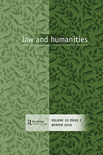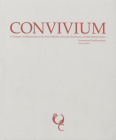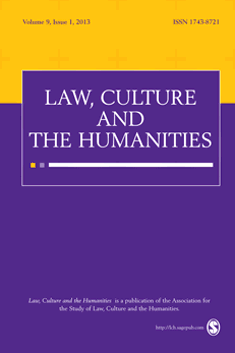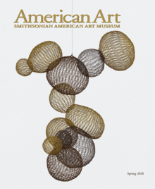
Law and Humanities
metrics 2024
Bridging Legal Inquiry with Human Experience
Introduction
Law and Humanities, published by Routledge Journals, Taylor & Francis Ltd, serves as a pivotal platform at the intersection of legal studies and humanities, exploring the intricate relationships between law, culture, philosophy, and history. With an ISSN of 1752-1483 and an E-ISSN of 1752-1491, this esteemed journal has established its reputation within the academic community, achieving a Q2 ranking in the Arts and Humanities (miscellaneous) and a Q3 ranking in Law by 2023 metrics. It provides valuable insights and fosters critical dialogue among researchers, practitioners, and students, creating a comprehensive understanding of legal frameworks through a humanities lens. Although not currently open access, the journal's rigorous selection process ensures that published papers contribute significantly to the field, making it an essential resource for anyone interested in the dynamic interplay of law and human experience. Located in the United Kingdom, it continues to shape scholarly discourse from 2007 through its converged years, from 2014 to 2024, as it addresses the evolving challenges and inquiries that define contemporary legal thought.
Metrics 2024
 0.18
0.18 0.30
0.30 0.70
0.70 7
7Metrics History
Rank 2024
Scopus
IF (Web Of Science)
JCI (Web Of Science)
Quartile History
Similar Journals

Law and History Review
Advancing Insights at the Crossroads of Law and HistoryLaw and History Review, published by Cambridge University Press, stands as a premier scholarly journal dedicated to advancing the interdisciplinary fields of law and history. With an ISSN of 0738-2480 and a robust E-ISSN of 1939-9022, this journal fosters a deeper understanding of legal systems through the lens of historical contexts. Notably categorized within the Q1 quartile in History and Q2 in Law as of 2023, the journal reflects a distinguished impact within the academic community, evidenced by its competitive Scopus rankings—221st out of 1,760 in Arts and Humanities for History and 436th out of 1,025 in Social Sciences for Law. Researchers, professionals, and students alike will find valuable insights in the journal's comprehensive analyses, which span from 1983 through to 2024. Though not open access, the journal is pivotal for those seeking to explore the dynamic interplay between legal traditions and historical narratives, reinforcing its importance in both legal and historical scholarship.

ARTMargins
Exploring the edges of art and culture.ARTMargins, published by MIT Press, stands at the intersection of cultural studies, history, and the visual and performing arts. Since its inception in 2012, this journal has provided a platform for critical dialogue and scholarly inquiry into contemporary art and its socio-political contexts, exploring the margins of artistic practice and representation. With a current Q3 ranking in Cultural Studies and History, and a Q2 ranking in Visual Arts and Performing Arts, ARTMargins is recognized for its impactful contributions to its fields, despite facing significant competition. The journal caters to academics, professionals, and students eager to delve into nuanced analyses and interdisciplinary approaches that challenge traditional narratives. As an essential resource for those studying art's role in society, ARTMargins fosters a deeper understanding of how culture shapes and is shaped by ephemeral artistic expressions. While the journal operates under a subscription model, it remains committed to accessibility and wide-reaching discourse within the academic community.

Convivium-Exchanges and Interactions in the Arts of Medieval Europe Byzantium and the Mediterranean
Fostering Dialogue on the Legacy of Medieval CreativityConvivium - Exchanges and Interactions in the Arts of Medieval Europe Byzantium and the Mediterranean, published by Masarykova University, is a dedicated platform for scholarly discourse in the fields of Classics, History, and the Visual Arts and Performing Arts. Since its inception in 2017, this journal has aimed to enrich our understanding of the intricate cultural interconnections between medieval Europe, Byzantium, and the Mediterranean region, standing as an important resource for researchers, professionals, and students alike. While the journal is published in an open-access format, enabling wider dissemination of knowledge, it currently holds a respectable Q3 quartile ranking across its categories in 2023, reflecting its increasing reputation in the academic community. Although the journal is based in Belgium, its scholarly reach is truly international, as evidenced by its varied contributions. Engage with Convivium to explore the rich tapestry of medieval art and thought, and contribute to the ongoing dialogue about our shared cultural heritage.

Kunstiteaduslikke Uurimusi
Engaging Minds in the Study of CultureKunstiteaduslikke Uurimusi is a notable academic journal published by the Estonian Society Art Historians, dedicated to the exploration and analysis of art and cultural studies within the vibrant context of Estonia and beyond. With an ISSN of 1406-2860, this journal offers a platform for researchers, professionals, and students to disseminate their findings and engage in meaningful discourse in the fields of Arts and Humanities and Cultural Studies. Although it occupies a fourth quartile ranking in both fields, the journal's commitment to fostering scholarly dialogue is evident through its open access provision, facilitating the sharing of knowledge across disciplines. Covering a broad spectrum of art historical themes since its inception, Kunstiteaduslikke Uurimusi aims to contribute to the understanding of artistic practices and cultural phenomena, making it an essential resource for those interested in the intersections of art, culture, and society. The journal continues to evolve, with coverage extending from 2011 to 2024, reflecting the dynamic nature of the arts and cultural sectors.

INTERNATIONAL JOURNAL FOR THE SEMIOTICS OF LAW-REVUE INTERNATIONALE DE SEMIOTIQUE JURIDIQUE
Unraveling the Semiotic Threads of Legal SystemsINTERNATIONAL JOURNAL FOR THE SEMIOTICS OF LAW-REVUE INTERNATIONALE DE SEMIOTIQUE JURIDIQUE, published by Springer, stands as a vital intellectual platform within the interdisciplinary fields of law and linguistics. With an ISSN of 0952-8059 and an E-ISSN of 1572-8722, this esteemed journal has served the academic community since its inception in 1988 and continues to publish insightful research until 2024. Recognized in the 2023 rankings, it achieves Q2 status in Law and Q1 in Linguistics and Language, affirming its influence and relevance in scholarly discourse. Featuring a strong performance in Scopus rankings—comprising Rank #192 and Percentile 82nd in Language and Linguistics and Rank #254 and Percentile 75th in Law—this journal is curating high-quality contributions that explore the intersection of legal systems and semiotic theory. Despite having no open access option, it continues to disseminate important research that illuminates the semiotic dimensions of legal discourse, making it an invaluable resource for researchers, professionals, and students interested in the evolving landscape of legal and linguistic studies.

Culture and Dialogue
Fostering Insight Through Cultural NarrativesCulture and Dialogue is a prominent journal published by BRILL, dedicated to exploring the intricate relationships between culture, communication, and societal dynamics. With an ISSN of 2222-3282 and an E-ISSN of 2468-3949, this journal serves as a vital platform for disseminating research that bridges various academic disciplines, including cultural studies, anthropology, and communication theory. Positioned in the Netherlands, it benefits from BRILL's esteemed reputation in scholarly publishing, ensuring high visibility and accessibility within the academic community. The journal aims to foster a deeper understanding of cultural narratives and dialogues, highlighting their significance in contemporary society. As an invaluable resource for researchers, professionals, and students eager to engage with cutting-edge discussions, Culture and Dialogue contributes significantly to the advancement of knowledge in its field.

Law Culture and the Humanities
Illuminating the Intersections of Law, Culture, and HumanityLaw Culture and the Humanities, published by SAGE Publications Ltd, serves as a pivotal forum for interdisciplinary dialogue at the intersection of law and the humanities. With an ISSN of 1743-8721 and an E-ISSN of 1743-9752, this esteemed journal has been contributing to scholarly discourse since its inception in 2005 and continues to do so until 2024. The journal carries a respectable impact factor showcased through its category rankings: Q3 in Arts and Humanities (miscellaneous), Q2 in Cultural Studies, and Q3 in Law. Its Scopus rankings reflect an impressive standing in the social sciences, particularly within Cultural Studies and Law, indicating that it is a fundamental resource for researchers and professionals aiming to explore the nuanced relationships between legal frameworks and cultural expressions. While not an Open Access journal, it offers substantial insights into contemporary debates, making it essential for academics and students engaged in the study of law's cultural dimensions.

American Art
Unveiling the Cultural Significance of American ArtAmerican Art, published by University of Chicago Press, is a leading journal in the fields of cultural studies and visual arts, with a notable impact in both academic and professional circles. Since its inception in 1996, the journal has provided a robust platform for scholarly discourse, showcasing a diverse array of research that examines the evolution, context, and significance of American art and its cultural implications. With an impressive Q2 ranking in Visual Arts and Performing Arts and a Q3 ranking in Cultural Studies for 2023, American Art remains a vital resource for researchers, professionals, and students alike, facilitating a deeper understanding of the intricacies within American artistic practices. While currently not offering open access, the journal is accessible through various academic databases, ensuring reach to a wide audience dedicated to the intersection of art and culture. The journal's commitment to innovative scholarship makes it an indispensable resource for anyone seeking to explore the dynamic landscape of American art.

Obradoiro de Historia Moderna
Connecting Scholars to the Rich Tapestry of Modern HistoryObradoiro de Historia Moderna is a prestigious academic journal dedicated to the field of modern history, published by the esteemed Universidade de Santiago de Compostela in Spain. With its ISSN 1133-0481 and E-ISSN 2340-0013, this journal has established itself as a vital resource for scholars in the humanities, achieving a remarkable Q1 ranking in History as of 2023, placing it in the top tier of academic publications in the field. Its Scopus rank of #226 out of 1760 positions it within the 87th percentile of Arts and Humanities journals, highlighting its impact and relevance. The journal is committed to advancing knowledge through rigorous peer-reviewed scholarship, focusing on a broad spectrum of subjects within modern history. Authors are encouraged to submit innovative research that contributes to the global discourse on historical methodologies and insights. With no open access model currently in place, each article published in Obradoiro de Historia Moderna represents a significant contribution to academic discourse, solidifying the journal's role as an essential platform for the exploration and dissemination of historical research.

Australian and New Zealand Journal of Art
Advancing Knowledge in Australian and New Zealand ArtThe Australian and New Zealand Journal of Art, published by Taylor & Francis Ltd, stands as a critical platform for scholarly discourse in the fields of art, visual arts, and performing arts, contributing to the ongoing dialogue regarding contemporary artistic practices and methodologies across Australia and New Zealand. With an ISSN of 1443-4318 and an E-ISSN of 2203-1871, this journal invites submissions that strive for innovation and insightful critique, aiming to foster a deeper appreciation and understanding of diverse artistic expressions. Despite its classification in the fourth quartile under the Arts and Humanities categories, it continues to attract attention within its niche, as evidenced by its Scopus rankings, indicating its vital role in the academic landscape. The journal is committed to bridging the gap between research and practice, providing access to a wealth of interdisciplinary knowledge for researchers, professionals, and students alike.